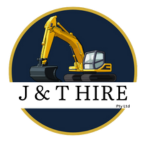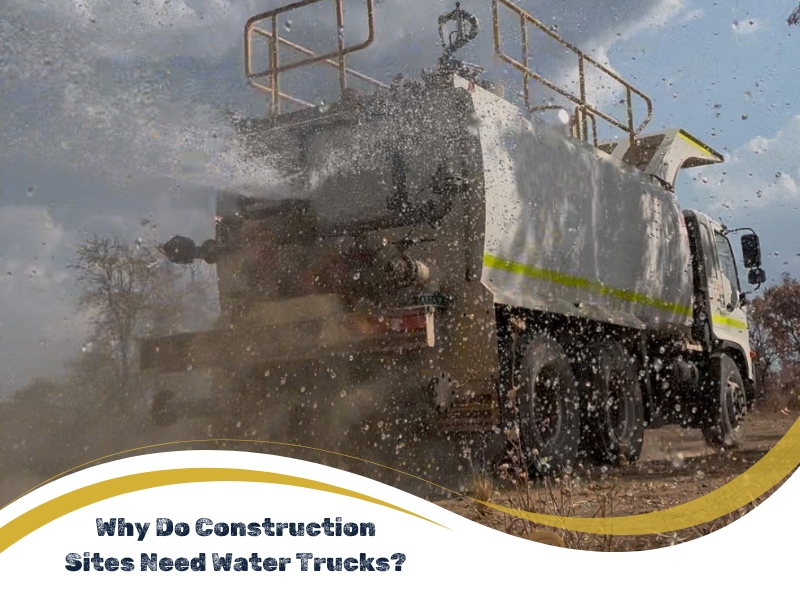Construction sites, especially in dry and dusty regions, often require reliable specialised equipment to ensure smooth operations. One essential piece of machinery is the construction water truck, which plays a critical role in maintaining safety, meeting environmental regulations, and improving overall site efficiency. If you’re managing a construction project, understanding the importance of water trucks can help you make better decisions for site management. This guide explores the various functions of water trucks on construction sites, highlighting their role in dust control, soil compaction, and compliance with legal and environmental regulations.
What is a construction water truck used for?
A construction water truck is a heavy-duty vehicle equipped with a large tank and high-pressure pumps to distribute water across construction sites. These trucks serve various purposes, helping construction teams manage dust, soil, and safety hazards effectively.
Key uses include:
- Dust suppression: Minimising airborne particles caused by heavy machinery and wind.
- Soil compaction: Ensuring that soil remains adequately moist to achieve better compaction.
- Road maintenance: Prevent erosion and reduce loose material on access roads.
- Fire prevention: Keeping combustible materials damp in high-risk areas.
- Cleaning equipment and infrastructure: Washing down machinery and surfaces to remove dust and debris.
What are the different types of water trucks?
Water trucks come in various sizes and capacities to suit different construction and mining needs. Choosing the right type depends on the project’s scale and specific requirements. Below is a breakdown of the common types of water trucks and their typical uses.
Type | Capacity Range | Typical Use |
Standard water cart | 8,000 – 20,000L | Dust control, soil compaction |
Minespec water truck | 15,000 – 30,000L | Mining and large-scale projects |
Small construction truck | 5,000 – 10,000L | Smaller worksites, cleaning tasks |
For large-scale construction and mining operations, Minespec water trucks with higher capacities are ideal, while smaller projects may benefit from compact trucks designed for targeted applications.
Why is dust control important on construction sites?
Dust control is one of the primary reasons construction sites need water trucks. Excess dust can lead to environmental hazards, health risks, and even legal complications.
Risks associated with uncontrolled dust:
- Health hazards: Fine particles, known as particulate matter (PM10 and PM2.5), can cause respiratory problems, eye irritation, and long-term health issues.
- Environmental damage: Dust can settle on nearby vegetation and waterways, affecting the local environment.
- Reduced visibility: Excess dust reduces visibility, increasing the risk of heavy machinery accidents.
- Equipment wear and tear: Dust can infiltrate machinery and equipment, leading to faster wear, breakdowns, and increased maintenance costs.
Best practices for effective dust control
- Apply water during peak work hours to minimise dust spread.
- Use multiple passes of the water truck during dry and windy conditions.
- Focus on high-traffic areas where dust generation is most likely.
By maintaining consistent moisture levels on-site, construction water trucks significantly reduce the environmental and health impacts of dust.
How do water trucks aid in soil compaction?
Proper soil compaction is essential for creating a stable foundation that can support heavy structures and prevent future ground movement. Soil that is too dry or too wet can lead to uneven compaction, increasing the risk of structural instability.
Ideal moisture levels for soil compaction
Soil Type | Optimal Moisture (%) | Compaction Efficiency |
Clay | 12 – 18% | High |
Sand | 8 – 12% | Moderate |
Silt | 10 – 16% | High |
Water trucks play a critical role in maintaining the balance between moisture and compaction, ensuring that construction sites meet the required standards. Additionally, long-term water truck hire is ideal for major construction developments, providing a consistent water supply throughout the project.
What are the legal and environmental regulations for operating a construction water truck?
Operating a water truck on a construction site involves adhering to various regulations. These rules protect both the environment and the health and safety of workers.
Key regulations to follow:
- Dust management plans: Many construction projects require dust control plans to prevent airborne particles from affecting nearby areas.
- Water usage guidelines: Sites must follow water management policies to minimise waste and avoid excessive water consumption.
- Environmental Impact Assessment (EIA): Construction projects may require an EIA to evaluate potential environmental impacts and implement measures to mitigate them.
- Workplace health and safety standards: Operators must follow strict safety protocols to protect workers and ensure the safe operation of water trucks.
By adhering to these regulations, construction sites can avoid fines, reduce environmental impact, and maintain safe working conditions.
How do you maintain a construction water truck for optimal performance?
Maintaining water trucks is essential to ensure their longevity and reliable performance. Regular servicing and inspections prevent unexpected breakdowns and costly delays.
Maintenance best practices:
- Check water pumps: Ensure no blockages or damage affect spray patterns.
- Inspect hoses and connections: Look for leaks or wear that could lead to water loss.
- Monitor tyre condition: Properly inflated tyres prevent uneven wear and ensure safety.
- Clean tanks regularly: Prevent sediment build-up affecting water quality and pumping efficiency.
- Check brakes and hydraulic systems: Routine inspections reduce the risk of mechanical failures.
Common issues to watch for:
- Clogged nozzles: Affects water distribution and leads to uneven coverage.
- Pump malfunctions: Reduces water pressure and affects spray performance.
- Tyre wear and tear: This can compromise the truck’s stability and safety.
Regular maintenance ensures that water trucks remain in optimal condition, allowing them to perform efficiently and meet the demands of construction projects.
Conclusion
Water trucks play a critical role in maintaining safety, efficiency, and compliance on construction sites. Whether it’s controlling dust, aiding in soil compaction, or meeting environmental regulations, having a reliable construction water truck on-site is essential. Proper maintenance and adherence to legal requirements ensure that these trucks operate smoothly, reducing downtime and keeping projects on track.
By understanding the importance of water trucks and implementing best practices, construction managers can enhance site safety, protect the environment, and improve project efficiency. If you’re looking to hire a reliable water truck, discover how J&T Hire can provide tailored water truck solutions for your project.

